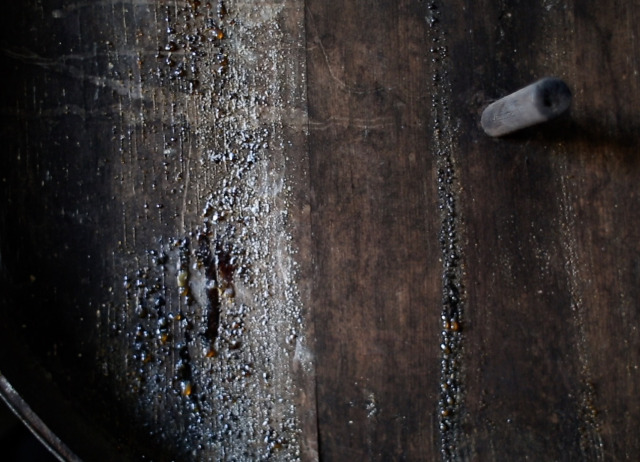Ethnographic and physic-chemical characterization of the Vino de Tea from La Palma
Researchers Pablo Alonso González and Eva Parga Dans have analysed the differentiating characteristics of the Vino de Tea produced on the island of La Palma, with the aim of establishing a unique classification for this artisanal product that falls under the "Vinos de La Palma" designation of origin.
The article " Vino de Tea (pine heartwood wine) from La Palma (Spain): ethnographic and physic-chemical characterization of a unique fermented product", published in the high-impact Journal of Ethnic Foods presents the results of a combined study that explores both the chemical and the ethnographic and cultural component of this product on La Palma. On the one hand, a series of interviews with professional wineries (Vitega, El Níspero, Vega Norte and Viñarda) and traditional producers whose vino de Tea is destined for self-consumption provided the researchers with relevant information on the techniques that were used historically and currently in the production of vino de Tea. On the other hand, the oenological and volatile compound analysis shed light on the characteristics that differentiate the vino de Tea from wines fermented in stainless steel tanks and in barrels made of other woods such as oak or chestnut.
The research was financed by the Cabildo of La Palma and the Denomination of Origin “Vinos de La Palma” and it included the participation of two researchers from the CSIC unit on that island, Mercedes Hernández González and Jana Alonso. One of the main results of the project is the quantity of the compound α-terpineol contained in the wine, which has potential health benefits. This is due to the fermentation in casks made of tea (pine heartwood), a very resistant resinous wood from the core of old Canary Island pines.
Projects such as the one developed by the IPNA researchers are crucial for the conservation, valorisation and continuation of sustainable production and commercialisation systems of products such as vino de Tea, whose survival has come into question in recent years. The implementation of activities that promote traditional winemaking methods could contribute to the recovery of a wine that is part of the culture of La Palma and that could constitute a fundamental resource for wine tourism on the island.
For more information, please refer to the article “Vino de Tea (pine heatwood wine) from La Palma (Spain): ethnographic and physic-chemical characterization of a unique fermented product”.
